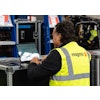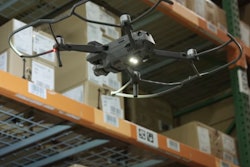
With unemployment holding steady at 1.3% in both November and December 2022 across the food manufacturing sector. It’s no surprise that labor and talent management remains the primary concern for nearly half (49.4%) of businesses in the food and beverage space.
The ongoing surge in inflation has only added to the problems faced by food and beverage manufacturers. As grocery prices rose 12% in November 2022 over November 2021, restaurant prices increased 8.5% during the same period. The USDA estimates all food prices will rise by as much as 4.5% in 2023.
With little relief in sight, food and beverage manufacturers need any help they can get to reduce costs and remain competitive and many are finding it in the form of technology. Technology is vital to the future of manufacturing enterprise resource planning (ERP) allows food and beverage companies to maneuver complex operations throughout their inventories and supply chains. It can track and automate routine objectives and empower their team to focus on more value-adding tasks. And that’s just the beginning. Here’s how technology is changing the present and shaping the future of food and beverage manufacturing.
Remain productive even when fewer workers are available
As food and beverage manufacturers strive to do more with less while maintaining their competitive position, technology is playing an increasingly important role in helping them achieve their goals. Leveraging ERP technology promotes adaptability and agility, while enabling visibility. Food and beverage manufacturers must be able to keep close track of ingredients throughout their entire process to a finished product. This visibility allows manufacturers to react quickly to market changes, recalls and other obstacles doing so with fewer workers required.
With economic pressures mounting, ERP’s flexibility provides the ability to manage all aspects of the business with less overhead. When talent leaves, an ERP solution acts as a throughline for the manufacturer and enables seamless transition of workflows. ERP streamlines time-intensive tasks, such as inventory management and improves visibility at every stage of the manufacturing process. By consolidating previously manual tasks through automation and machine utilization monitoring, food and beverage manufactures can turn their data into intelligence and pinpoint both progress and problems over time or even before they become costly issues.
By leveraging this type of functionality, food and beverage manufacturers can maximize productivity from their existing machines and their employees. Talent continues to be sparse despite the ongoing fears of a recession, and Deloitte estimates that the entire manufacturing sector could have more than 2 million unfilled jobs between now and 2030. In short, food and beverage manufacturers are going to have to learn how to function with less talent.
With the right technology, they can fulfill this expectation. ECI Software Solutions’ research shows that nearly three-quarters (70%) of manufacturers use an ERP solution to drive their day-to-day operations. Nearly all (94%) say that they relied on ERP technology to manage the impacts of the pandemic. Now they’ll need to do the same to accommodate the limitations of the workforce.
Use the latest technology to attract and retain talent
Most people, especially Millennials and Gen Z, want to work in a tech-driven environment. They don’t want their time to be wasted by manual and repetitive tasks, which ultimately leave staff feeling bored, underappreciated and unfulfilled. The “cog in the machine” mentality of corporate America no longer applies in a world where employees have increasingly learned that they can go somewhere else.
Workers are particularly interested in automation. Manufacturers are increasingly moving towards automated work processes to increase efficiencies, accuracies and production level. As automation will have a major impact on redundant and frustrating work, any food and beverage manufacturer that embraces this technology will be better positioned to attract and retain top talent.
That said, it is inevitable that some people will switch jobs or simply retire, creating a risk for skills gaps as new and less experienced workers come through the door. With the right technology, food and beverage manufacturers can overcome this generational transition by retaining and relaying the knowledge and expertise of former staff. Enabling the right technology ensures process control and prevents mistakes as less experienced workers are brought up to speed. This is an especially important component of ERP systems. New technology and clear throughlines allow employees to share information and train new hires on best practices and skills with ease. Leveraging ERP through familiar technology such as mobile tablets and applications allows for the next generation of the workforce to learn in a comfortable setting.
Be on the cutting edge with the latest technology
Food and beverage manufacturers are continually challenged by market forces, including inflationary pressures and the ongoing labor shortage. But they can overcome these hurdles and build a stronger enterprise with the latest technology which can be used as both a tool for productivity and talent acquisition. People want to work in an innovative environment that embraces technology that allows them to focus on meaningful objectives, and technology like ERP allows them to do just that. By continually updating and investing in the latest tech, food and beverage manufacturers can ensure they are on the cutting edge of efficiency and employee retention.

















